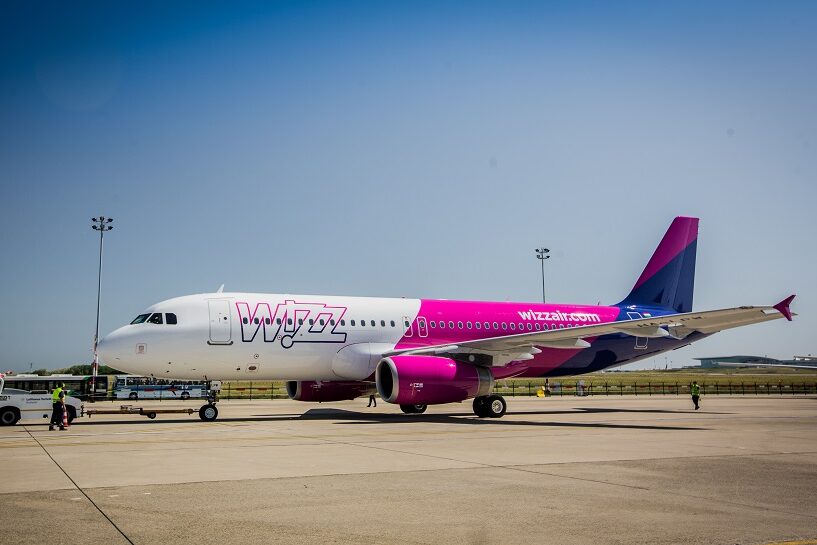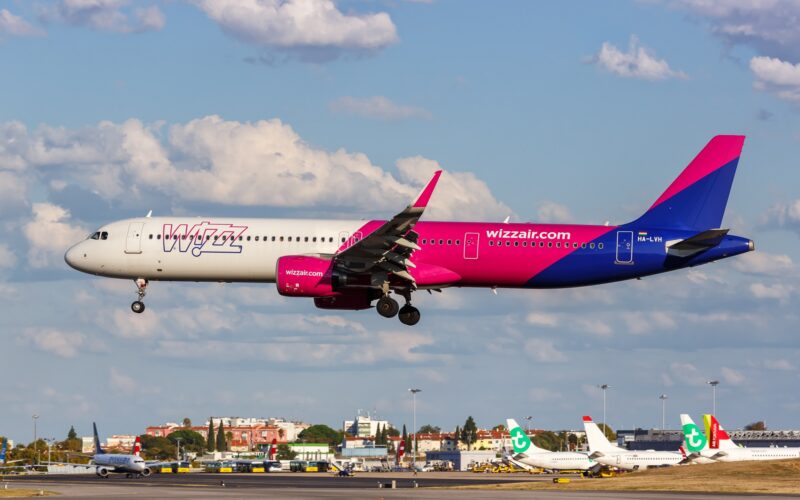European low-cost carrier Wizz Air has announced a profitable six months up to September 30, 2023. However, the company remains cautious about the immediate future as it grapples with various issues currently affecting the global aviation industry.
The budget airline group posted an operating profit of €522.9 million ($559.8 million) for the six months to September 30. This compares favourably to the loss of €63.8 million euros ($68.2) in the same period of 2022.
The second quarter (Q2) was particularly lucrative for the airline, with post-tax profits closing five times higher on a yearly comparative.
The company carried just under 33 million passengers in the period, an increase of 27% compared to the same period in 2022.
Average seat kilometres (ASK), an indicator of capacity and fleet management, also increased 27% year on year, with unit costs per ASK falling more than 12%.
According to the airline, cheaper, well-hedged fuel prices offset sharp rises in staff, maintenance and marketing costs.
Announcing the latest results, Wizz Air’s Chief Executive, József Váradi, said, “This summer we delivered significantly improved operational performance compared to last year. There were fewer flight cancellations, and overall fleet utilisation and productivity increased year on year. Our revenue and profit results reflect the higher volumes we now operate and the enormous amount of work and investment over the past three years.”
Not all plain sailing
Despite all the good news, the airline remains cautious about the immediate future amid various factors affecting the airline sector.
As a result, Wizz Air has narrowed its annual profit forecast below analysts’ expectations. The airline cites continuing macroeconomic uncertainty and difficult operating conditions, along with international unrest, for the downgrading of its projections. Consequently, the Wizz Air share price fell 6.3% in early morning trading.
Wizz Air is not alone in taking a cautious stance. Many European-based airlines have reported strong results this quarter yet are warning of an uncertain outlook as jet fuel prices remain volatile, and supply chain issues and a lack of economic clarity prevail.
Wizz Air is also one of the main airlines hit by issues with engines manufactured by RTX this year and has said it will be forced into capacity reductions as a result. This type of engine powers many of the airline group’s Airbus A320neo and A321neo aircraft fleet.

Aerospace supplier RTX said in September that 600 to 700 of its geared turbofan engines (GTF) would have to be removed for quality checks, likely to result in some aircraft being grounded.
Analysts say that while the proportion of the European short-haul fleet that is grounded is small, this could have a noticeable impact on competition and, therefore, pricing in the summer of 2024.
The airline said it was on track to receive a delivery of a further 21 A321neo planes by the end of the 2024 financial year and that it had secured compensation from RTX over the need to inspect engines on its aircraft.
Speaking on the engine inspection issue, Varadi said, “The bigger issue is really how to complete the engine inspection program with the least degree of disruptions to the operation.”
The airline expects to have 45 aircraft grounded at the start of 2024, and the carrier expects its current growth rate to slow as a result.

